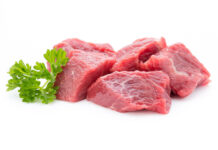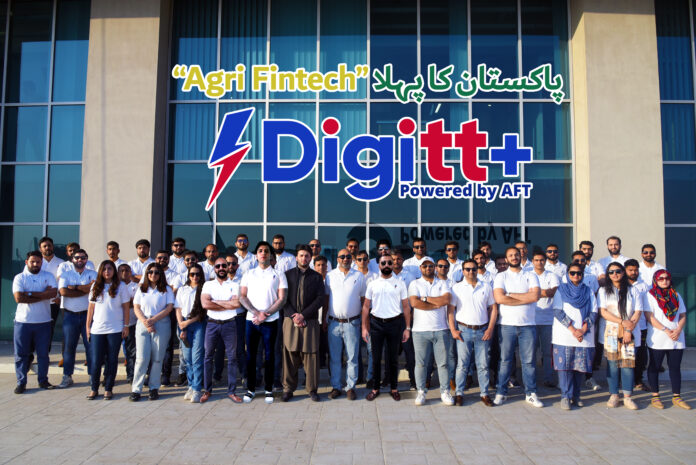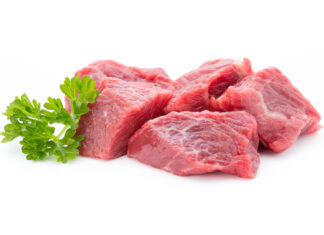LAHORE: Fintech company Akhtar Fuiou Technologies (AFT) has received approval from the State Bank of Pakistan (SBP) to commence pilot operations for an Electronic Money Instituion (EMI) license, as it sets eyes on bringing financial services to the largely informal agricultural sector.
Following the approval from the central bank, AFT will be commencing pilot operations for its agriculture focused fintech brand Digitt+ to digitise agricultural payments and distribution of credit products from licensed lenders to farmers.
Launched in late 2020, Akhtar Fuiou Technologies is a joint venture between Pakistan’s Akhtar Group, Chinese fintech company Fuiou Technologies and a third partner in the venture, Chinese eCommerce platform JollyChic. The company has thus far raised about $2 million in pre-seed funding, and received in-principle approval for EMI license in the May of last year.
AFT is also arguably the first fintech company that is launching dedicated fintech products for the agriculture sector, that too as a licensed entity. Other EMIs, such as SadaPay and Nayapay, provide funds transfers, bill payments, and card transactions.
Finja on the other hand has a wallet for consumers and merchants but is more focused on providing working capital to merchants under its NBFC license.
Qasim Akhtar Khan, founder and chief strategy officer at AFT, tells Profit that their first use case would be to digitise payroll at a sugar mill owned by the Akhtar Group, followed by digitising payments from the mill to farmers for sugarcane procurement.
“We want to ensure timely payments to sugarcane farmers; we want to ensure that sugar mills get the visibility on cane procurement transactions,” says Qasim.
“If there are more and more transactions in which cane is procured directly from the farmer rather than the middleman, that results in better recovery for the sugar mill, timely payment for the farmer, which will eventually result in better prices of the end product for consumers.”
Besides payments, Digitt+ will be gunning to open agriculture for access to finance from banks and other licensed financial institutions. Agriculture has largely been considered high risk because of a lack of transparency in transactions, requiring expensive collateral in form of land against small loans.
EMI AFT will helping secure sugarcane farmers secure loans from banks and other licensed entities by collateralising cane purchase receipt (CPR). CPR is issued by the sugar mills confirming that the payment is owed by the mill and the actual payment is made later.
“By collateralising the CPR, we are derisking what has historically been known as a risky target segment, the rural farmer in Pakistan. Most of their lending needs are fulfilled by a middleman who charges arbitrary rates, mostly predatory,” Qasim says.
The farmers sell the sugarcane to a mill but receive payments at a later date. The farmer, due to the lag in recovery of payments, end up going to loan sharks to cover expenses related to farming the next crop.
Wth the CPR collateralised, farmer would instead be able to get these loans from a bank or a non-banking finance company (NBFC) through the Digitt+ platform at better rates. “If the farmer is unable to make the payment back to the bank, that amount will be deducted from the CPR, derisking what has historically been a high risk segment for the banks.”
In addition, Qasim says, AFT will be targeting about 100,000 rural merchants, served by another one of their group companies for sale of consumer products, for payments and lending under the EMI license.
However, not all payments would be digitised through the EMI wallet due to limits on transfers by the central bank. Under the EMI regulations, payments of upto Rs500,000 can be made under the licence.
Whereas payments to farmers from a sugar mill, for instance, can go up to tens of millions of rupees. Digitt+, therefore, plans to start with payments of upto Rs500,000 under the wallet operations.
To overcome restrictions that come with an EMI license and to be able to lend from its own deposits, AFT is in the race for getting a digital banking license. The State Bank of Pakistan is in the process of finalising the names of five applicants that will receive the digital bank license this year.
In addition, AFT plans to apply for an NBFC license to be able to lend from its balance sheet, in case plans to become a digital bank do not materialise with this year’s licenses.
“At Digitt+, we are using technology to develop innovative digital financial products focusing on microservices to build a comprehensive platform that will enable the delivery of these solutions to a wide range of users, not only for the retail Agri market but for the corporate sector as well, through the provision of specialized business tools.” added Ahmed Saleemi, CEO of Digitt+, giving further insight on how the company would unlock the potential of the Agri economy.























